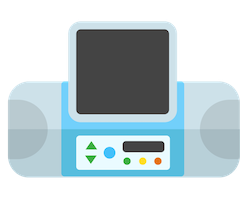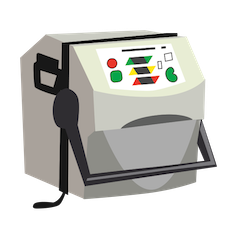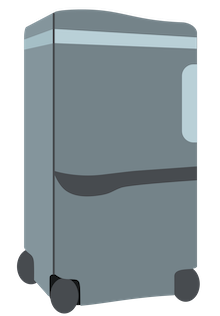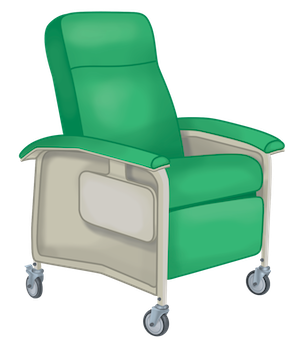Your Equipment and Supply Questions
By Beth Witten, MSW, ACSW, LSCSW
So...you're thinking about doing home dialysis and want to know how and where you will get what you need—and what it will cost. There is good news: if you have Medicare or another health plan, it should cover most of the direct costs. Some costs may fall on you. We'll help you learn what is covered and how—and you can bring this article to your clinic in case you run into a snag.
How Will I Be Trained to Do Home Dialysis?
You and a care partner (if you need one) will be trained at a clinic that is approved by Medicare to offer home training and support. The clinic will bill Medicare or your other health plan for your training. The nurse, dietitian and social worker will provide support to you at home or when you come to the clinic. In fact, Medicare rules for dialysis (Section 42 CFR 494.100) say that the clinic must give you the same services at home as it would if you did your treatments in the clinic.
If Medicare is your primary payer and you have Part B, it will pay 80% of the allowed charge for training after you have met the yearly Part B deductible. It will also pay 80% of the cost for each treatment that includes your machine (if you use one) and supplies. A Medigap (Medicare supplement) plan or Medicaid will pay most or all of the rest. Without another health plan, you could owe 20% of the Medicare-allowed charge.

If you have Indian Health Service, VA benefits or an employer group health plan, check your policy, visit the payer's website, or call your health plan to find out what it will cover.
What are Support Services?
Medicare covers "support services" from your nurse, social worker, and dietitian to help you stay healthy. They will answer your questions or troubleshoot problems. You can call them, and you will see them when you come for clinic visits. You will need to come to clinic monthly for at least the first 3 months you do home dialysis. After that, if you’re stable, you may be able to do two clinic visits a quarter using telehealth and go to clinic only once a quarter.
Your home training nurse should make a home visit to make sure you can dialyze safely at home. This is not to judge you. S/he may help you decide which room to use for dialysis, where to store supplies, and what you need to set up your dialysis room and machine (if you use one).
How Will I Get the Equipment and Supplies I will Need?
Your doctor will prescribe what you need to do the type of treatment you will be trained for. Your training nurse will order your machine, if you will use one, and order the first batch of supplies. During training, you will learn how to order your own supplies, which will be delivered to your home. You will also learn to keep track of what you have used (inventory) to make re-ordering easier. You'll need to be home or have someone there to sign for the supplies and put them away.
Peritoneal Dialysis (PD)
Two companies in 2024 make PD machines and supplies—Baxter and Fresenius. The one you use will bring them to your home. When companies use their own trucks, their delivery people do nothing else and tend to be first-rate. They may unload and take supplies where you want them (upstairs, too!). They may rotate your stock so you use the older supplies first. If your company uses a common carrier, such as Fed-Ex or UPS, the driver may just drop off a pallet of supplies on your front porch. Some clinics have PD technicians who will come to your home and help unload and organize the supplies. Others don’t, and you may need to open the boxes and bring the bags in the house one or two at a time or find someone to help you.

Home Hemodialysis (Home HD)
There are two companies in 2023 that make FDA-approved home HD machines—Fresenius and Outset.

A NxStage (Fresenius) System One or Versi needs to connect to water to make dialysis fluid or use bagged dialysis fluid. One month of supplies will be about 20 boxes. You can stack them in a closet, along a wall, or under a bed. Some people take the supplies out of the boxes and put them in bins to save space. Your supplies may arrive by FedEx, UPS, or another carrier. These delivery people will bring supplies to your door—but may not bring them into your home. (Sometimes with a tip they will help you. Or, you may need to have your own help on hand.) See NxStage patient stories at https://www.nxstage.com/patients/stories/.

An Outset Tablo® needs to connect to water, too. Six weeks of supplies fit in a 37 x 24 x 43-inch space, or about the size of a small closet. Supplies are shipped when you need them based on how often you do your dialysis. Outset works with you and your clinic to make sure you get the supplies you need. When you have 3 weeks of supplies left, an Outset Patient Experience Specialist will help you place your order and answer questions. An Outset freight partner will deliver your supplies on a given date and during a window of time. You’ll get a reminder call or text, depending on your preference, before delivery. Your supplies will be delivered inside your home where you want them. Watch a video of Tablo patients and care partners explaining how Tablo and supplies fit in to their homes: https://youtu.be/_SSAHYhJs_U?si=v3gQozCSN4K6mrYN.
There are some other machines in testing or new to the market that are not yet FDA-approved for home dialysis. Check this site for updates: https://homedialysis.org/home-dialysis-basics/machines-and-supplies.
What Does Medicare Cover?
Medicare covers a machine, supplies, and "support equipment" under the rate per treatment that Medicare lets a clinic charge. If you have Medicare only, you'd pay 20%. If you have more than one health plan, check your policy or call your health plan's customer service to ask about coverage and what you might pay. Medicare pays for equipment you will keep using, such as:
PD cycler or HD machine
Water treatment equipment for HD
A heparin pump, even if it is separate from the machine
A basic dialysis recliner if you need one (see below)
Forceps
Blood pressure cuff
Stethoscope
Scale
Scissors
Syringes

Medicare also covers supplies you will use up and reorder, such as:
Dialysis fluid for HD and PD
Dialyzers for HD
HD needles and tubing
Topical anesthetics
Alcohol wipes
Gauze
Sterile drapes
Gloves

Will Medicare Pay for a Dialysis Chair?

If you do standard or daily home HD while sitting, there could be times when your blood pressure will drop and you need to lower your head below your heart. (This is very rare at home, but it could happen.) Because of this, Medicare will cover a basic recliner chair. It will not cover extras on a recliner that make it heat, vibrate, swivel, or rock (though you may be able to pay for these yourself when your clinic orders your chair). If you do nocturnal HD, you will not need a recliner chair because you can safely do your HD in bed while you sleep.
Some people tell us their clinics does not believe they need to provide a recliner chair. Chapter 11 of the Medicare Benefit Policy Manual under Section 20.4 says they do. If you have a hard time getting your clinic to provide one of the covered items we list here, refer your clinic staff to this manual. If the problem is not solved, file a complaint with your ESRD Network or State Survey Agency. Their phone numbers should also be posted in your clinic.
Chapter 11 Of the Medicare Benefit Policy Manual, Section 20.4 1 states that all medically necessary equipment, supplies or other items your doctor orders are covered under Medicare’s payment for dialysis treatments.
“The ESRD facility with which the patient is associated assumes responsibility for providing all home dialysis equipment, supplies, and support services either directly or under arrangements to all of its home dialysis patients.”
Who Pays to Install Dialysis Equipment?
Most dialysis machines today are “plug and play.” They do not need special wiring or plumbing.
PD cyclers do not need to be connected to water, but they do need to drain. Your clinic can provide a long hose that can reach to a toilet, tub or shower.
You will need a grounded electrical outlet and access to water for home HD machines unless your machine can use bagged dialysis fluid.

Medicare requires clinics to cover minor costs to connect a dialysis machine to electricity and plumbing that is already in the room. It does not require a clinic to cover wiring or plumbing to bring power or water into the room where you will do dialysis.
Medicare covers equipment, installation, and support equipment under the rate it pays your clinic for each home dialysis treatment. It will not pay you back for any of these things if you pay for them yourself.
If you are in the U.S. and bought equipment or supplies that your clinic should have given you, ask your clinic to pay you back. Show the box in this article as proof that they need to do so. If your clinic refuses, contact your ESRD Network (www.esrdncc.org) or call 1-800-MEDICARE to report possible Medicare fraud.
Who Pays for Repairs to a Machine or Water Treatment System?
Medicare will pay to maintain or fix a dialysis machine under the per treatment rate it pays your clinic. This includes replacing filters on the HD water treatment system, sending a machine out for repair, or having someone come to your home. During training, you will learn to do some simple maintenance yourself.
Conclusion
Getting equipment and supplies for home treatments sounds complex, but your home training nurse will help you. S/he will suggest ways to track and order supplies, and you can talk to others at home to see how they handle these tasks. It can be helpful to see how others set up their treatment rooms and store their supplies. If you are on Facebook, you can join the Home Dialysis Central Facebook group to ask questions and get support. Knowing what Medicare covers and what your clinic must supply to you can help you get off to the right start with home treatments.
References:
Centers for Medicare & Medicaid services. Medicare Benefit Policy Manual Chapter 11: End-Stage Renal Disease (ESRD). Available at www.cms.gov/manuals/Downloads/bp102c11.pdf. Accessed December 2023.

